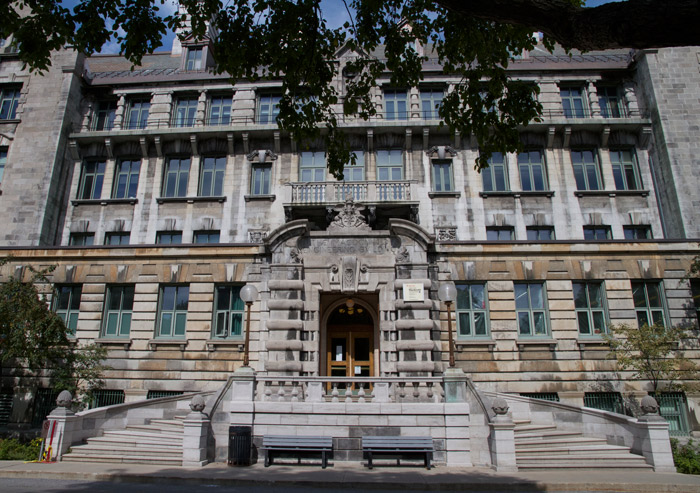McGill intends to borrow $300 million in the form of bonds over the next five to seven years to tackle deferred maintenance. Large-scale construction projects are set to take place across McGill’s Downtown and MacDonald campuses during this time period. While construction on McTavish and Sherbrooke was commissioned by the City of Montreal, building renovations are coordinated by the university. Over half of McGill’s buildings are in need of major renovations, according to a recent CBC report. The bond issue will be in addition to $48 million that McGill receives annually from the Quebec government for capital improvements, according to Associate Vice Principal (Facilities Management and Ancillary Services) Robert Couvrette.
Couvrette said that $800 million is currently estimated in deferred maintenance. An additional $500 million is needed in areas that are not eligible for government subsidy, such as parking and sewage.
According to Internal Communications Director Doug Sweet, campus buildings have been stabilized with scaffolding in compliance with Quebec law and the focus is now on masonry work and heating, ventilation, and air conditioning (HVAC) replacements.
“We have taken steps to make sure that our campus is safe and secure,” Sweet said. “I wouldn’t say that there’s an unsafe building on campus.”
Couvrette noted that the Macdonald-Stewart Building, the Strathcona Anatomy and Dentistry building, the James Administration Building, and Wilson Hall will be prioritized for upcoming masonry work. HVAC replacement priorities include the Rutherford, University Centre, and Wong Buildings.
McGill campus construction projects often have a long timeline. Robert Selby, building director for the Macdonald-Stewart Building, stated that work on the building’s roof began in 2013 and that the building was stabilized in Fall 2014.
“We did the roof, and right after that they started doing stabilization of the building,” Selby said. “They were two different things, but as you do one thing you discover the other. You open [a building] up and you don’t know what you’re going to find.”
Further masonry work on the building is set to begin in May 2017 and is expected to last a year and half. The budget for this project is $26 million, according to Couvrette. The recently completed Arts Building portico cost over $1 million and took a year to complete due to difficulty in procuring materials.
“We had to find different stones in different quarries that have the same colour and same shape to be able to replace the stones that we were unable to repair,” Couvrette said. “If we didn’t find the right stones the Arts portico would look like a pizza.”
McGill’s masonry construction projects are usually auctioned to St-Denis Thompson or Atwill-Morrin, two of Montreal’s largest contractors.
“Every project goes to public tender, but because of the nature of this very specialized business, more often than not those big firms will win most of the contracts,” Sweet said. “You see that all over Montreal, not just at McGill.”
Couvrette emphasized the need to prioritize certain projects due to limited funding and limited capacity of construction firms in Montreal to complete the projects. Prioritization is given to projects that have a direct impact on student learning environments.
U3 Arts student Serisha Iyar feels that the poor condition of certain classrooms on campus make for a challenging learning environment.
“In Arts 145, the chairs and desks are broken, since everything’s attached the chairs fold down, but half of them are cracked so you don’t really want to sit in them for a really long lecture,” Iyar said. “I’ve had various classes there and it’s stuffy since there’s not a lot of ventilation, so there’s not a lot of air circulating for you to breathe properly, especially in the winter.”
Many of McGill’s buildings, which are over 100 years old, are considered heritage buildings, and thus face strict regulations to be restored according to code.
“If for example, [a heritage building] has a slate roof, we have to replace [it with] slate […], or if it has copper flashing around the edges, we have to replace [it] with copper. We can’t just slap aluminum and asphalt shingles on these buildings,” Sweet said. “That’s why McGill’s maintenance costs are higher than those of most other universities. We have a greater number of heritage buildings to look after.”









Technically the deferred maintenance budget and projects list are separate from classroom renovations, which have (limited) funding through Teaching and Learning Services. Priority projects are determined by a working group that includes student representation, and Arts 145/155 are actually scheduled for upcoming renovation!